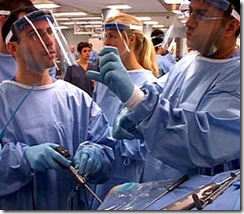Planning a timeline is not necessary but will make your life much easier if done properly. Rest assured, planning ahead of time for as much as three years requires a lot of insight into the intricacies of the process (which I have briefly outlined in the previous post) and is thus very hard and time consuming.
Like most things tagged high importance in your life, timeline planning requires making mutliple attempts,with subsequent revisions improving. You will see the progress as time goes on . That said, if you do not start, there will be no progress at all.
As a sample, below is a modified timeline Kaplan recommend using:
36-18 months before the start of school (md):- Take free practice MCATs (Kaplan, Princeton Review, others that came with your study books)
- Gather school info
- Develop a target school list
24-16 months before the start of school (md):- Register for the MCAT
- Dedicate at least 2 months of studying
- Do the MCAT
20-12 months before the start of school (md):- Go to your student service, see what resources your university offers with premed applications.
- Set deadlines with referees
- Write your personal statement
- Complete and submit applications
- Investigate financial aid options
12-3 months before the start fo school (md):- Prepare for interviews
- Visit campuses
Inasmuch as this example could be applied to a real plan, it is obviously limited by lack of details and some important points. Remember, the quality of your planning will be directly proportional to the investment you make in it.







